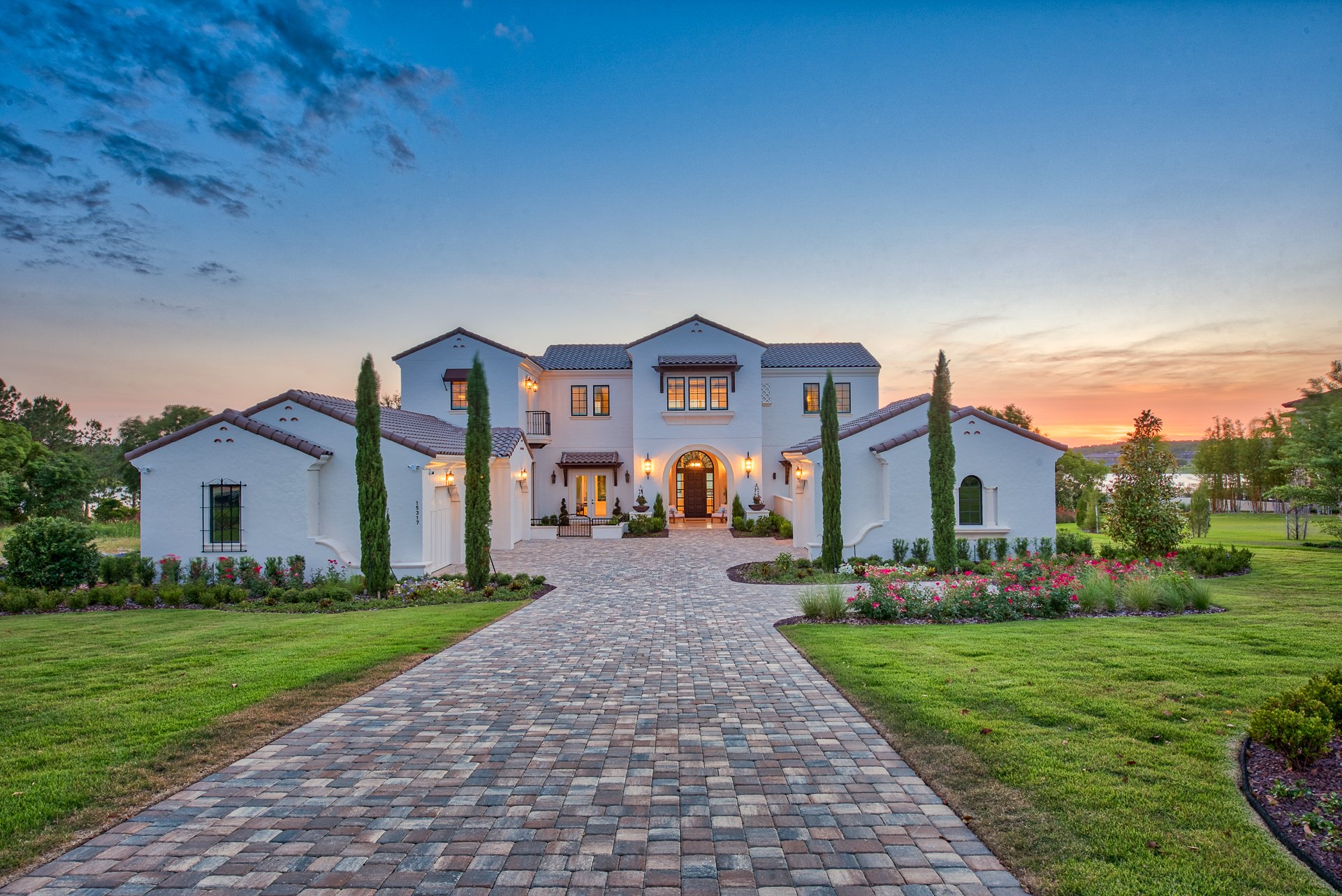
There are 2 main kinds of homeownership in the UK; freehold and leasehold. If you are aiming to buy a home or a flat, it is vital to understand the distinction, specifically if the residential or commercial property is in London where over a 3rd of all homes are leasehold residential or commercial properties.

Whether you're purchasing a detached home around Wandsworth, Wimbledon Village or South Wimbledon, or an apartment in Battersea or Putney, you require to know exactly what kind of ownership you're purchasing.

What is the difference between freehold and leasehold? In this short article, we'll break down the terminology and cover some of the important things you should look out for if you are buying a leasehold residential or commercial property. We'll likewise share essential truths on the new Leasehold and Freehold Reform Act, which is set to change certain leasehold guidelines - keep reading for all the information.
What Is A Freehold?
Purchasing a freehold residential or commercial property provides the buyer sole ownership of both the building and the land it sits on.
Most homes we offer in Wimbledon, Wimbledon Village, Coombe Hill, Kingston Hill and in other places in South West London are freehold residential or commercial properties.
Benefits Of Freehold
Owners of freehold homes can make any alterations they want to the residential or commercial property - as long as they adhere to preparing policies or, if needed, acquire Listing Building Consent.
There are no ground rent or service fee to pay, no time at all limitation on your ownership of the residential or commercial property, and freeholders are not reliant on anyone else to maintain the building.
What Is A Leasehold?
With a leasehold, the buyer owns the residential or commercial property for the duration specified in the lease agreement. When the lease ends, ownership reverts to the freeholder. The lease contract will specify the number of years left on the lease.
Although leaseholders own the residential or commercial property's internal space, fittings, flooring and walls, they do not own the land the flat rests on or the fabric of the structure, including the roofing and external walls. As an outcome, leaseholders need permission from the freeholder to make alterations or include an extension.
Most flats and apartments are sold as leaseholds.
The Impact Of The Leasehold And Freehold Reform Act
On 24th May 2024, the Leasehold and Freehold Reform Act 2024 ended up being law in England and Wales as part of the 'wash out' ahead of the basic election. Most of the procedures are yet to be rolled out, however crucial changes to be knowledgeable about include:
Redress plans - freeholders must sign up with one, and can be challenged if they fail in their obligation to the leaseholder.
Building management - it will become much easier for leaseholders to assume management.
New lease purchase and extension criteria - more leaseholders will receive the right to buy or extend their lease.
Longer lease extensions - rising from a basic 90 years for flats and 50 for houses, up to 990 across the board.
Ban on brand-new leasehold houses - under the changes, new houses must be offered on a freehold basis in the majority of cases.
Some mooted modifications were dropped as the costs gone through your home of Lords, though they may still lead the way for future changes. You can discover additional info in the UK government's Leasehold and Freehold Reform Bill explanatory notes, readily available on gov.uk.
What To Consider When Buying A Leasehold Residential Or Commercial Property
Leasehold residential or commercial properties are a typical type of ownership, so there is no need to delay a purchase. However, there are some things you ought to bear in mind.
1 Length Of The Lease
Lease length can differ considerably, so this is the very first concern you ought to ask about the residential or commercial property before choosing if it's the one for you.
A flat's original lease duration is likely to be a long duration - typically 99 years or 125 years and can be as high as 999 years. As time passes, the period remaining on the lease reduces, so older residential or commercial properties might have much shorter leases.
Ownership of a leasehold home will revert to the freeholder once the lease runs out. Leases with 80 years or fewer are considered short. Anyone purchasing a flat with a brief lease will discover it harder to get a mortgage.
If you have actually set your heart on a flat with a brief lease, you should not compose it off completely. Government reforms revealed in 2021 make it less expensive and more accessible for leaseholders to obtain lease extensions, while the Leasehold and Freehold Reform Act must make the procedure even simpler. You can likewise make it a condition of sale that the vendors begin the procedure of extending the lease before you take on the residential or commercial property.
2 Extending The Lease
Most leaseholders acquire a lease extension long before it reaches zero years. Extending a lease can be a complex legal process - though the Leasehold and Freehold Reform Act aims to streamline it. The expense is decided by settlement between the leaseholder and the freeholder and depends upon the residential or commercial property's worth.
Until now, different kinds of residential or commercial property (flat or house) have taken advantage of different basic extension lengths. However, brand-new federal government legislation gives the leaseholder the right to extend their lease by approximately 990 years. The reforms include set computation rates to guarantee lease extensions are fairer, cheaper and more transparent.
Learn more about the costs and process of how to extend your lease.
3 Leasehold Service Charges
To cover the costs of keeping the building's structure and the development's communal locations, the property manager or handling representative will impose a service fee.
While fees differ depending upon the size of the advancement, some service fee consist of contributions to a reserve or sinking fund that is utilized to cover big one-off bills.
4 Ground Rent
Ground lease is a fee payable to the property owner yearly or half-yearly. While it is normally a token payment in the area of ₤ 200 or ₤ 300 a year, some property managers can charge countless pounds each year.
Beware that the property managers of many new-build advancements have actually been placing clauses into the leases, permitting remarkable increases in ground rent. However, the new Leasehold and Freehold Reform Act might result in a peppercorn rent in future.
5 Management Disputes
It prevails for disputes in between leaseholders and freeholders to arise. The most common complaint is that the freeholder does not maintain the building to an adequately high requirement and overcharges for service fee and ground rent. The 2024 legislation intends to make charging structures more transparent, but this will take time to come into effect.
Before buying a leasehold residential or commercial property, search for out as much as possible about the handling representatives by speaking to the present homeowners or searching on the internet.
What Is The Price Difference Of A Freehold Vs Leasehold
In South West London, the cost of a freehold residential or commercial property tends to have a higher value than leasehold residential or commercial properties. However, lots of homes with long leases in some cases have a price variety similar to freehold residential or commercial properties.
The range in cost depends on lots of factors, from the location to the residential or commercial property size. You may not be comparing like with like, so when you buy or offer a home, consider - is my residential or commercial property freehold or leasehold? If it's leasehold, the number of years are left on the lease?
Whilst the rate difference in between long leasehold and freehold might not be considerable, the distinction between brief leasehold vs freehold can be dramatic. You would just own the residential or commercial property for a minimal timeframe and need to consider the expenses of a lease extension.
Can I Buy The Freehold Of A Leasehold Residential or commercial property?
A leaseholder can purchase a share of the freehold together with the other residents of the house block. However, the procedure can be complicated and expensive.
You'll have to fulfill the terms of the Leasehold Reform Act 1967, such as holding the lease for the whole residential or commercial property for a minimum of two years. Seeking independent legal and monetary guidance is strongly recommended.
How Much Does It Cost To Buy A Freehold?
The cost of buying a freehold differs, though it's often equivalent to an 80-90 year lease extension. The cost should be agreed by both celebrations, or settled individually at a tribunal.
Represent the expenses attached to purchasing a freehold as well, including:
- Land windows registry charges
Stamp Duty
- Your legal charges and evaluation costs
- The freeholder's legal fees and valuation charges
Though under the new legislation, leaseholders may no longer be obliged to cover the freeholder's legal fees in every circumstance.
What Is A Flying Freehold?
Flying freeholds cover residential or commercial properties that overlap land owned by somebody else. Some mortgage service providers don't provide for flying freeholds, so ask concerns before taking your application further.
You might come across a flying freehold on residential or commercial properties that:
- Cross a shared passageway
- Are maisonettes or homes where areas are owned under separate freeholds
- Have a veranda over another residential or commercial property
- Include basements or cellars listed below a neighbouring residential or commercial property
Should I Buy a Leasehold House?
Based on your situations, you can choose if the rate difference in between freehold and leasehold represents an excellent deal. Consult, and consider the residential or commercial property along with the broader advantages and disadvantages.
Freehold Properties: Benefits And Drawbacks
Here are some benefits and drawbacks of a freehold residential or commercial property to consider:
- You would own the residential or commercial property and the land
- You have control of the residential or commercial property
- You have ownership until you sell
- There are no service fee or ground rent
- The residential or commercial property value will not decrease due to the lease length
- Generally, more pricey to buy
- You are accountable for all the expenses of owning residential or commercial property, consisting of building insurance, upkeep and enhancements.
Leasehold Properties: Pros And Cons
What are the advantages and disadvantages of a leasehold residential or commercial property? These favorable and negative differences in freehold and leasehold are worth thinking about:
Pros
- Generally more affordable to purchase
- You would not be responsible for the communal areas
- You would not need to maintain the structure of the building
Cons
- The worth of the residential or commercial property will lessen as the lease length reduces
- If the lease length is brief, it may be challenging to sell the residential or commercial property
- Permission may be required before making changes to the residential or commercial property
- There may be limitations on how you can utilize the residential or commercial property
- You are accountable for associated costs, consisting of ground rent and service charges.
It's vital to find the best service for you, by examining your own personal and monetary circumstances, before choosing if a freehold or leasehold residential or commercial property is for you. Every lease is various, so check the lease terms to prevent any unforeseen costs.
Commonhold Properties
Commonhold is an alternative form of residential or commercial property ownership promoted by anti-leasehold campaigners. The building and land are divided into systems (for instance, flats) and common parts. There is a signed up title with the Land Registry for each unit and one for the common aspects.
Therefore, the flat owner will own the freehold of the system, so there will be no time limitations, as there are with leasehold contracts. The freehold of the common parts is owned by a commonhold association that will manage the structure's common locations. Unit owners have a right to be members of the commonhold association.
If you have any concerns about leasehold vs freehold residential or commercial properties, or if you are seeking to buy, offer, rent or let a residential or commercial property in the Wimbledon area, call us today.

Residential or commercial property Valuation?
Looking to Sell or Let Your Residential or commercial property? Book Your Free Residential or commercial property Valuation with among our experts.



